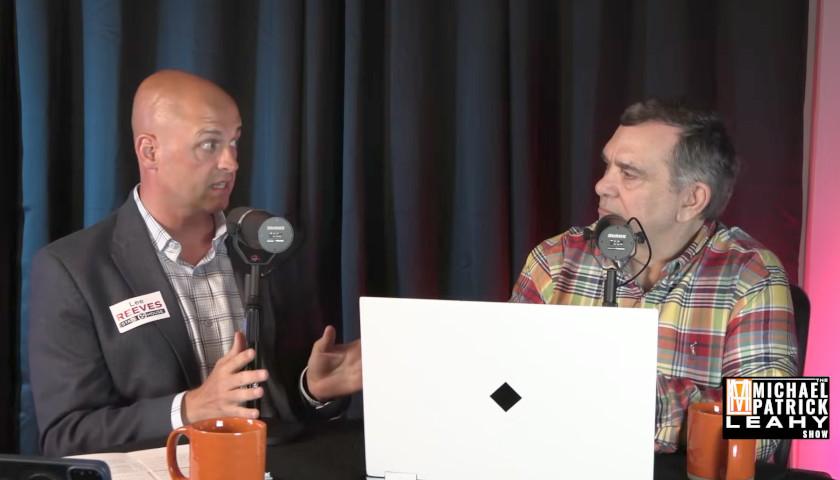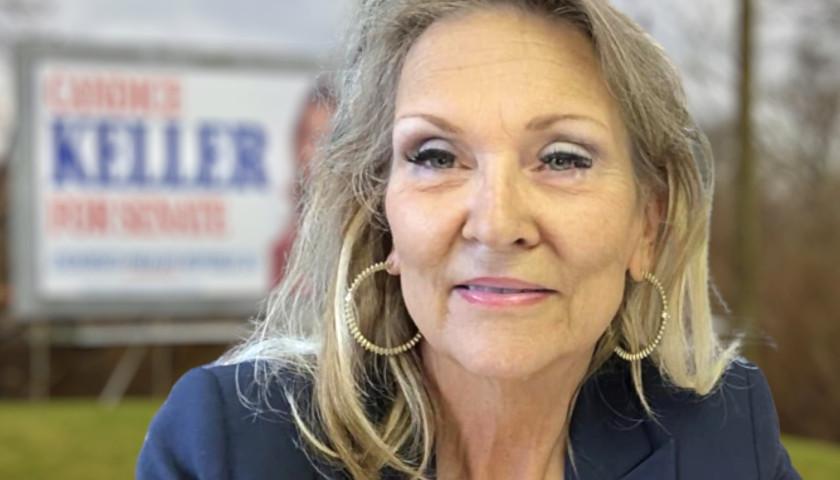The Gallatin City Council made a proposal at its regularly scheduled meeting Tuesday evening to de-annex the property of a resident who pulled a petition as a candidate in the November election for the Gallatin City Council earlier that same day.
De-annexing the property would effectively eliminate the owner from running in a city election.
The property owner and candidate, obviously shocked by the proposal, responded to the council at the end of the meeting, saying, “Wow, we’re back in communist country here.”
Pascal Jouvence, a resident within Gallatin Council District 3 picked up a petition for the Sumner County Municipal Elections, which were made available by the Sumner County Election Commission on Monday, June 20, according to the petition report that is updated regularly. Jouvence picked up petitions Tuesday for both his district and the at-large positions that will appear on the November 8 ballot.
Jouvence, along with his wife, regularly attends meetings of Gallatin’s city government, requests public records, speaks during the public comments segments of the meetings, and communicates directly with council members. He is a frequent critic of the council’s actions and votes.
Jouvence ran for the at-large council position in 2020, challenging the current Gallatin Vice Mayor Shawn Fennell. Published election results show Fennell bested Jouvence 59 to 27 percent with an additional 13 percent going to a third candidate and less than a half percent going to write-in candidates.
Fennell outspent his political newcomer opponent $13,000 to $7,800, according to campaign financial disclosure records. The vast majority of Jouvence’s expenses were covered by the $10,000 he loaned his campaign while Fennell received the majority of his campaign contributions from development-related donors, even though the occupation and employer fields on the itemized statement of contributions were frequently left blank.
The proposal for the de-annexation of the Jouvence property did not appear on the published agenda for the Tuesday meeting. However, after the council completed the regular calendar, Fennell made the proposal under other business.
Fennell, without mentioning the names of the people he was referring to, reminded council members of an incident from five or seven weeks prior. He said a citizen came up and spoke, upset about being annexed into the city and not receiving all of the plan of services in the city.
As detailed in Tennessee law under T.C.A. 6-51-102, a “plan of services” and implementation schedule must be adopted by the municipality prior to annexation of the territory that is comparable to those delivered to all citizens of the municipality.
Fennell expressed his grievance to the council members, saying, “We all know that over the last three and a half, four years, that these citizens have been upset and they’re always negative towards everything we do up here. That’s all of us. And it’s just that there’s nothing ever nice said about the city of Gallatin or any of us.”
Still without mentioning any specifics about their name or address but alluding to a private yet “friendly” conversation his fellow, also-unnamed councilman had regarding de-annexation, Fennell reported that the citizens said de-annexation was something they wished and desired to have done.
Based on his “personal opinion,” and right in front of the property owner attending the meeting, Fennell made a motion to de-annex 1335 Long Hollow Pike and “put them back into the county.”
Council Member at Large Steve Fann expressed his agreement with Fennell.
“That particular party, since I’ve been on the council, there’s nothing the city – or the county, for that matter – has ever done right for them,” Fann complained as he seconded the motion.
Mayor Paige Brown pointed out that City Attorney Susan High-McAuley was indicating that Fennell’s motion would not be appropriate. Brown added that their normal route is to take an issue to a work session for it to be added to an agenda.
The attorney said there would need to be a lot of research into the issue, but that under the rules with a two-thirds majority vote the council could discuss the matter.
“It would not necessarily be my recommendation to do that, though,” the attorney advised.
After some discussion, between Brown and Fennell, Fennel made a motion to consider the de-annexation of the specific property which was then seconded by Fann.
Brown expressed that she was not comfortable with the motion, because it is not consistent with their procedure and not as transparent as they need to be.
Expressing agreement with the sentiments of Fennell and Fann, Brown said, “I certainly understand probably where your thoughts are coming from,” regarding Jouvence exercising his First Amendment right to redress his government.
She did, however, cite concerns over the process. “But, I just don’t think it’s the right way to do this.”
Brown then reminded the council of a previous situation when it was “just assumed” it would be fine to de-annex another street.
“Apparently legally we could, but I don’t think it was appropriate,” she concluded.
Four parts of Tennessee law is dedicated to de-annexation or “contraction” of municipal boundaries in T.C.A. 6-51-201 through 6-51-204.
The procedure for boundary contraction under T.C.A. 6-51-201 requires that the legislative body pass an ordinance with a majority vote. If the contraction is objected to via signed petition by 10 percent of the registered voters residing in the area to be de-annexed and filed with the city recorder within 75 days after the final reading of the contraction ordinance, a referendum must be held at the next general election. If the de-annexation measure fails, it cannot be considered again for two years.
Fennell and Brown had a brief exchange during which they both interrupted each other. Fennell said he wasn’t trying to be mean, but complained, “We all feel and all know that it’s always a situation and always an ongoing problem that seems like we have no remedy to fix.”
Fennell said that when it was brought up by another councilman, he thought that de-annexation was “a fairly good way to solve the problem.”
Before taking a vote, Brown said it would be better if the form was an “ask” by the resident.
The voice vote was 5-1 in favor of considering the matter, with council members Lynda Love (District 1), Eileen George (District 2), and Jimmy Overton (District 3) joining Fennell and Fann with yes votes. Craig Hayes (District 4) was a vocal “no vote” and John Alexander (District 5) was absent.
After the vote, Hayes said he feels the issue needs to go back to be discussed. “I think he’s talking about me as the councilmember, but I didn’t really ask for them to be de-annexed or anything like that.”
Raising his hands in the air in protest, Hayes said, “This was not my idea. I don’t want anybody thinking this was my idea.”
Brown, getting back to business, summarized there was a vote of 5 to 1, meeting the two-thirds threshold to consider the de-annexation that evening.
While Fennell said he stood by his motion, Brown said he needed to remake it, because the motion wasn’t proper at the time he originally made it.
Fennell made a motion to put it on the work session for discussion, based on what he said was Brown’s advice.
Brown responded, “I wouldn’t say that was my advice,” as she was talked over by Fennell.
Fennell continued, “We could have some discussion from … ,” he said as he gestured contemptuously toward the Jouvences, “to see if they want to stay in the city or if they want to leave.”
The motion to put it on the work session agenda was made by Fennell, seconded by Fann and approved unanimously.
After about seven minutes on the issue and with the remainder of the agenda items completed, Brown proceeded to open public recognition for non-agenda related items with five minutes allotted for each speaker.
When Jouvence reached the podium, he leaned forward and – as previously reported – said into the microphone, “Wow, we’re back in communist country here.”
After identifying himself and his address, which corresponded to the motion by Fennell, “It’s kind of funny that the best way to get rid of an opponent, is to put him out of the city. Thank you,” Jouvence said, visibly shocked by Fennell’s proposal.
After partially addressing the comments he wanted to make about the dangerous state of repair of a section of Long Hollow Pike, he shook his head in disbelief and said, “Aw, man, sometimes you crack me up.”
Obviously distracted by the earlier proceedings, Jouvence spoke directly to Fennell.
“By the way, you probably didn’t listen to me earlier, but I said plenty of positive things. You know, I thanked people who worked on the study,” referring to a pay study discussed earlier in the meeting.
“But you know, it’s hard to understand my southern accent,” Jouvence said sarcastically, alluding to his heavy French accent, which was the subject of previous ridicule by council members.
Using just about a minute and a half of his allotted five minutes, Jouvence declared, “I have to stop there tonight, because, man, you did good. Congratulations,” as he walked away from the podium and the meeting adjourned.
The Sumner County Commission orchestrated a similar maneuver to eliminate the political opponent of an incumbent school board member. During the census-related redistricting process, Patricia Brown (District 9) who happens to be the mother of Gallatin Mayor Paige Brown, loudly declared, “I want the left side of [District] 9 cut off.”
At the time, Brown was the only school board member who had a declared opponent for the 2022 election, and that opponent happened to reside in the specific neighborhood Brown so adamantly wanted out of the district, as The Tennessee Star reported.
The terms of City of Gallatin Council members Craig Hayes (District 4), John D. Alexander (District 5) and Steve Fann (At Large) expire in January and, as such, all are up for re-election in November 2022.
Jimmy Overton (District 3) opted to run for county commission in the newly designated District 9 and was defeated by political newcomer Mary Genung by a margin of 59 to 41 percent of 857 votes cast.
Gallatin Mayor Paige Brown, with her term also expiring January 2023, pulled her petition for re-election on Wednesday.
In 2017, Gallatin was declared the first “Nicest Place in America” by Reader’s Digest in partnership with the Nextdoor social network for neighborhoods and the BYUtv television show Random Acts.
The video of the June 21 Gallatin City Council meeting can be watched here, with the discussion regarding de-annexation beginning at the 54:20 mark.
– – –
Laura Baigert is a senior reporter at The Star News Network, where she covers stories for The Tennessee Star.
Photo “Pascal Jouvence” by Pascal Jouvence. Background Photo “Gallatin City Hall” by Ichabod. CC BY-SA 3.0.






Just one more instance of the council that has systematically allowed unbridled growth causing irreparable damage. No planning just greed for more tax dollars to squander.
My wife and I recently moved to TN, Gallatin specifically, in September of 2021 from the NW Suburbs of Chicago IL. Upon meeting many locals, we are often asked “where are you from?” Upon our reply the response is always “don’t bring that stuff here”. There were many reasons for our decision, but one of our top was to escape the fiscal incompetence and corruption of State and local politics. Sad to say, “that stuff” is already here. Officials like Fennell, Fann and any others that go along with this type of abusive behavior need to resign or voted out.
Sue those idiots on the council.
Gallatin just hit a new low. If this de-annexation ploy doesn’t tell voters to remove these people from off, then I have no idea what will. Sad day for Gallatin and the Constitutions of Tennessee and the United States.
Traffic light near Lowe’s is horrific. Traffic moves at a snails pace thru Gallatin due to unsynchronized lights! Gallatin needs more than gas stations, fast food, and banks! Bring businesses that will provide decent full time jobs!!!